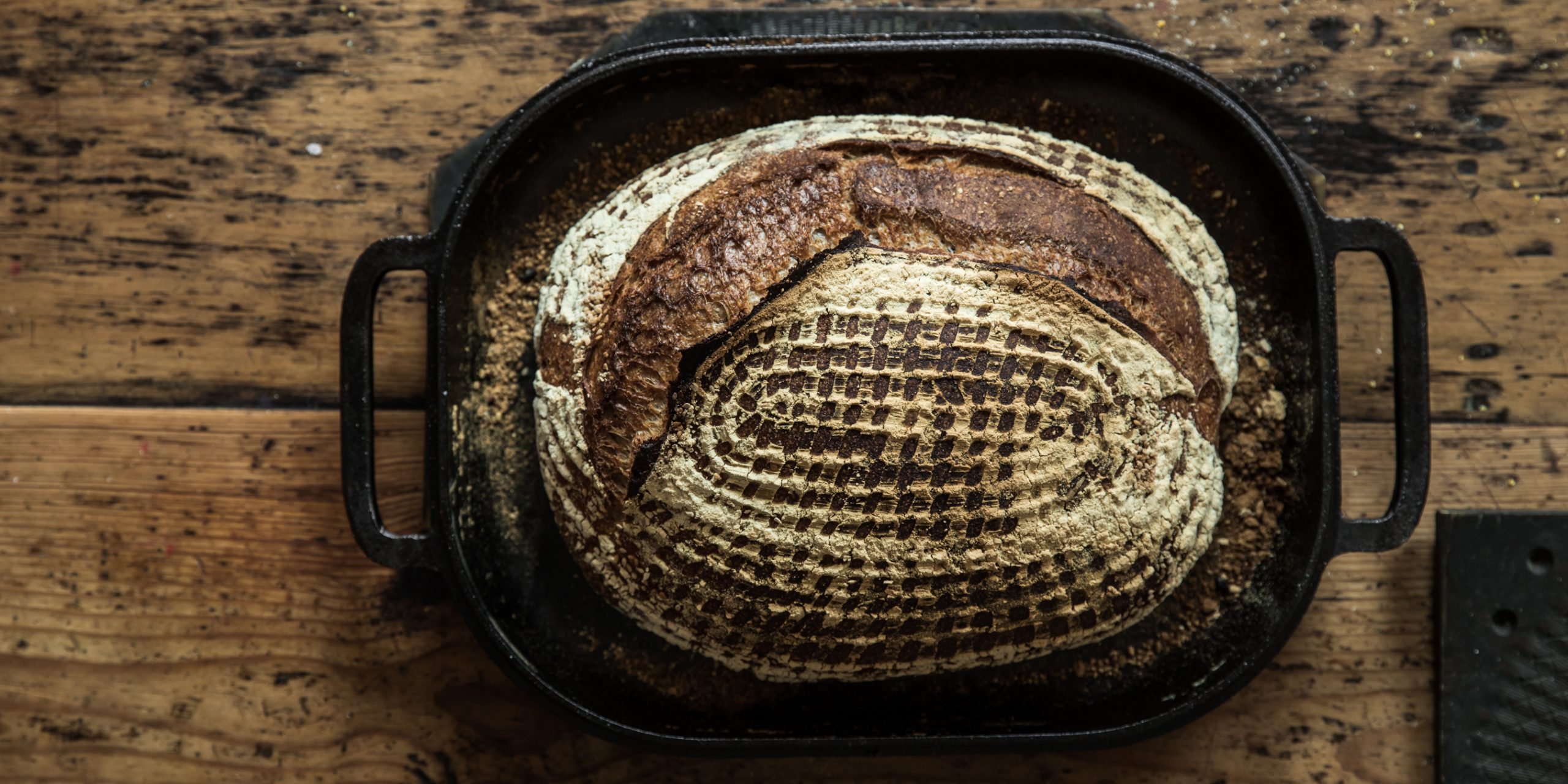 Learn to personalise bread.
Learn to personalise bread.
Bread is possibly one of the most misunderstood foods on the planet. When made well, according to the BALM Protocol, bread can support health; on the other hand, poor quality bread will ruin your health when eaten over a lifetime. It is time that we better understand that the way we respond to bread is unique. Personalising bread is a transformative approach to nutrition, focusing on tailoring bread recipes to the individual, taking into account their gut microbiomes and lifestyle factors.
It is about acknowledging the uniqueness of each person’s response to bread, driven not just by differences in DNA, microbial composition, and daily habits but also by the way in which people eat their bread.
Cutting-edge knowledge of bread, the gut microbiome and lifestyle medicine
Being able to offer a bespoke dietary solution to enhance health and well-being. Personalisation extends beyond mere baking; it incorporates dietary patterns and lifestyle changes to optimise gut health, nutrient absorption, and overall metabolic health. You will learn how customisation supports preventative health measures, potentially mitigating future health issues by aligning bread consumption with personal health needs and preferences. This approach represents a cutting-edge integration of nutrigenetics and lifestyle medicine, enabling individuals to make informed, health-supportive choices in their baking and eating habits. You will understand and learn how to personalise bread as well as how to bake, eat, and share each approach to bread. You will also learn the many ways that you can personalise bread for many health and social reasons.
Throughout the course, you will:
-
- Learn how to personalise bread baking as lifestyle medicine, which is about helping people avoid lifestyle diseases by empowering them to bake, eat, and share bread. When applied as Lifestyle Medicine, it is a practical and achievable way to improve health. For healthcare practitioners, you will also learn how to use this to prescribe Baking As a Lifestyle medicine to comply with NHS social prescribing guidelines.
- Understand Long, Slow Fermentation: Learn the mechanisms of how this process transforms bread and enhances gut microbiome and mental health through the Sourdough School Bread protocol.
- Impact of Mass-Produced Bread: Explore how low-quality bread and baked goods negatively affect health.
- Gaining Insight through Biome Testing: Assess the impact of the BALM Protocol on gut microbiome and health by conducting biome tests and consulting with Research and Medical Directors.
- Appraise Case Studies: Review Sourdough School case studies showcasing improvements in physical and mental health outcomes.
- Apply Knowledge in Clinical Practice: Medical professionals can obtain a practitioner’s license to prescribe BALM as part of their practice.
- Professional Skill Enhancement: Engage in continuous learning through workshops, seminars, and research on Baking as Lifestyle Medicine.
- Build Supportive Networks: Connect with healthcare professionals and bakers to share experiences and collaborate on health-promoting baking projects.
- Positive Community Impact: Understand how BALM can enhance community health through initiatives like the ‘bake two, share one’ principle.
- Recognize Social Prescription as Activism: Learn how prescribing BALM is a powerful form of health activism.
- Create and Share Case Studies: Develop and share a case study and a bread or cake recipe demonstrating the BALM Protocol.
- Prescribe BALM: At the end of the module, prescribe BALM based on a successful, ethically compliant case study.
- Weekly Baking Application: Use scientific knowledge from the syllabus to guide weekly baking and recipe creation.
- Mentoring Opportunities: Optionally mentor a young healthcare professional in the principles of BALM.
Transforming the simple act of baking, eating and sharing bread into a powerful tool for personal health management.
- Preventive Health: Understanding the impact of bread types, such as the fibre content in whole grains, on gut health can inform dietary recommendations for conditions like bowel cancer or cardiovascular disease.
- Lifestyle Diseases: The glycaemic index of bread is crucial for managing blood sugar levels, aiding in the prevention and management of conditions like Type 2 Diabetes, obesity, and hypertension.
- Mind and Body Wellness: Different bread types can influence the gut-brain axis, affecting mental well-being and cognitive functions.
- Neurodiverse Needs: Tailoring bread consumption can play a role in dietary management for individuals with ADHD or autism spectrum disorders.
- Nutritional Goals: Bread’s nutritional composition, including fibre, vitamins, and minerals, is key for gut health and overall nutrition.
- Weight Management: Choosing the right type of bread can be integral to a balanced diet for weight control.
- Digestive Health: Specific bread types can help manage conditions like IBS, gas, bloating, Crohn’s Disease, and Diverticulitis.
- Immune System Support: High-nutritional-value bread can bolster the immune system, aiding recovery from illness or inflammation.
- Gluten Sensitivities: Understanding how different breads affect gluten sensitivity or wheat intolerance is crucial for dietary choices.
- Specific Diet Support: Bread choices can complement dietary needs like vegetarian, vegan, or paleo diets.
- Dietary Management for Medical Conditions: Bread type is important for blood sugar control in diabetes management.
- Medical Treatment Support: Certain breads may be more suitable for patients undergoing chemotherapy or radiation therapy treatments.
- Clean Eating Goals: Organic and naturally sourced breads align with reducing exposure to pesticides and herbicides.
- Mental Wellbeing: The gut-brain axis influenced by bread consumption can impact mood balance, anxiety, and depression.
- Performance Enhancement: The right type of bread can support athletic performance and endurance.
This module is also the foundational knowledge for healthcare practitioners to use bread as a personalised tool for enhancing health and well-being, aligning with individual patient needs and health objectives for social prescribing baking as lifestyle medicine.

